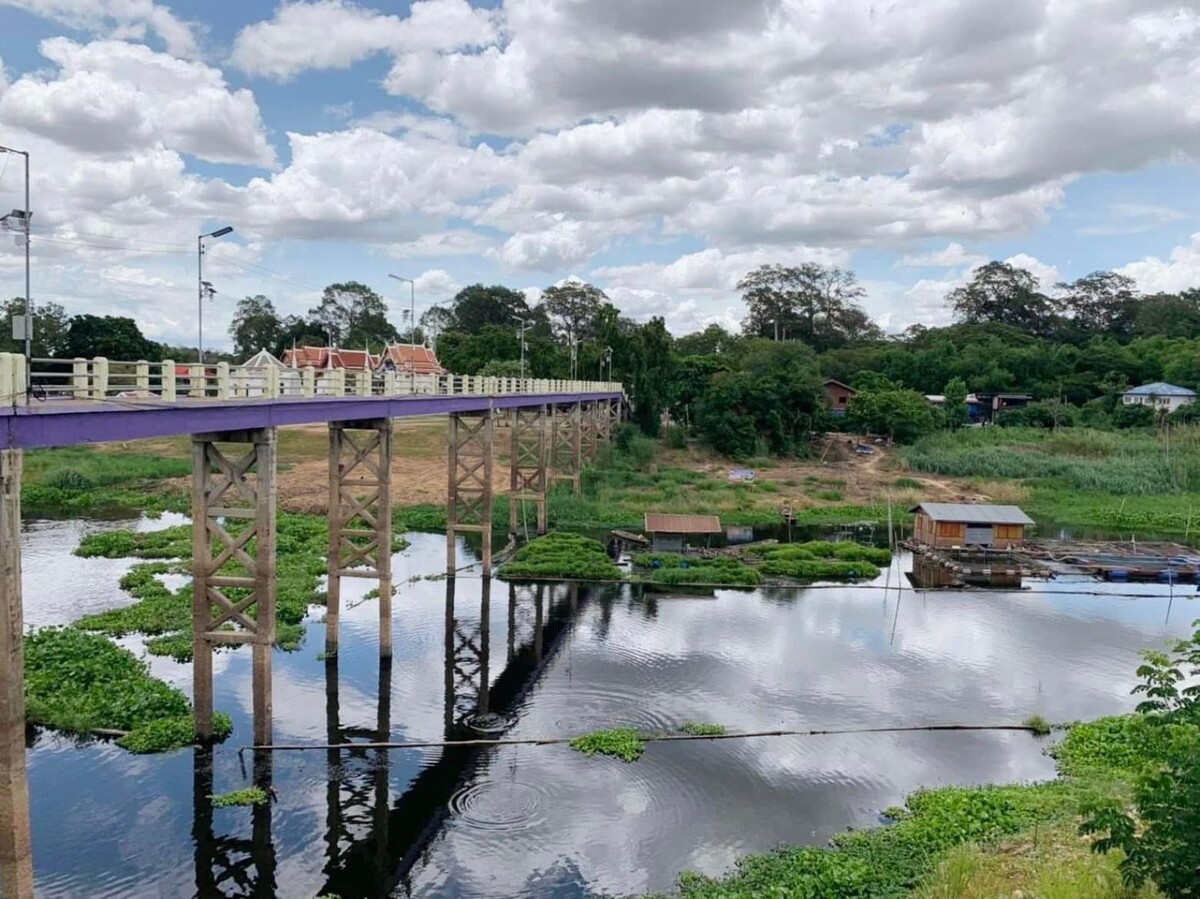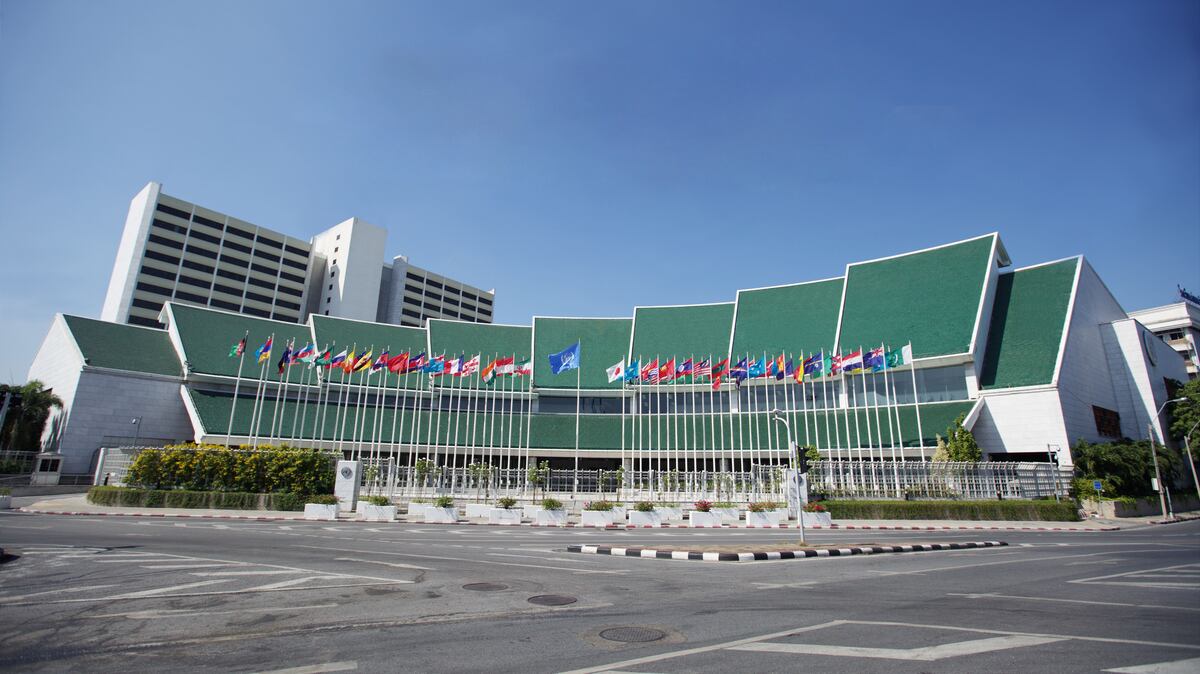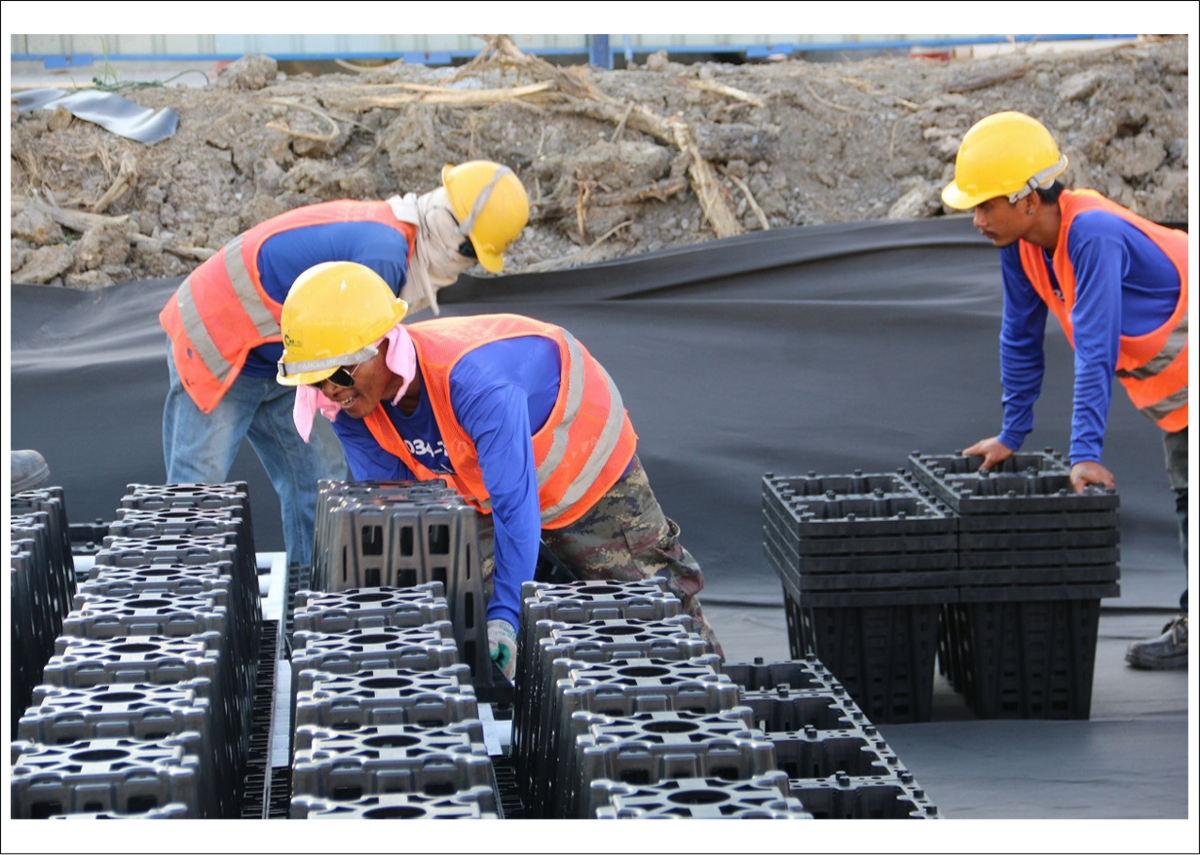
by Chichibu Chemical Co., Ltd.
Issue
The Bangkok metro area suffers from recurring floods and flood damage, made worse by land subsidence due to excessive groundwater use and water shortages resulting from the growing urban population. Innovative solutions are needed to mitigate flood risks while supporting Thailand's sustainable development goals.
Any innovative technology must be integrated into the existing urban infrastructure to be effective in different environmental conditions. Project goals must align with Thailand's broader sustainable development objectives. The need for comprehensive stakeholder engagement and policy support to facilitate widespread adoption and maximize benefits also presents significant hurdles.
Solution
Plastic rainwater storage structures (PRSS) capture rainwater where it falls, such as in urban areas, and store it underground to be gradually discharged later. PRSS produced by Japan's Chichibu Chemical Co., Ltd., are a viable solution that can be localized. Ongoing surveys need to examine the expected impact of installing PRSS in frequently inundated areas.
Overview
The Japan International Cooperation Agency (JICA), Industrial Estate Authority of Thailand (IEAT), and Chichibu Chemical Co., Ltd. have been collaborating on installing and surveying plastic rainwater storage structures (PRSS) in metropolitan Bangkok. Rainwater-induced flooding is a major ongoing problem in urban Thailand, especially during the rainy season. Inadequate sewerage and increasing urbanization and land subsidence (surface shrinkage), along with the effects of climate change, make this problem even worse. PRSS represents a sustainable strategy for adapting to and countering these effects. The ongoing project is yielding promising results.
Details
Thailand experiences heavy rainfall during the monsoon season and sometimes in other seasons, which often leads to flooding, exacerbated by the country's topography and urban development. Low-lying terrain, Inadequate drainage systems, and climate change further compound the problem, which can cause significant damage to property, infrastructure, and livelihoods.
The Industrial Estate Authority of Thailand (IEAT), (Japan International Cooperation Agency (JICA), and the Japanese company Chichibu Chemical Co. Ltd. are collaborating to address rainwater flood damage in urban Thailand, particularly in areas with insufficient drainage systems. Their project started in 2019 centers on plastic rainwater storage structures (PRSS).
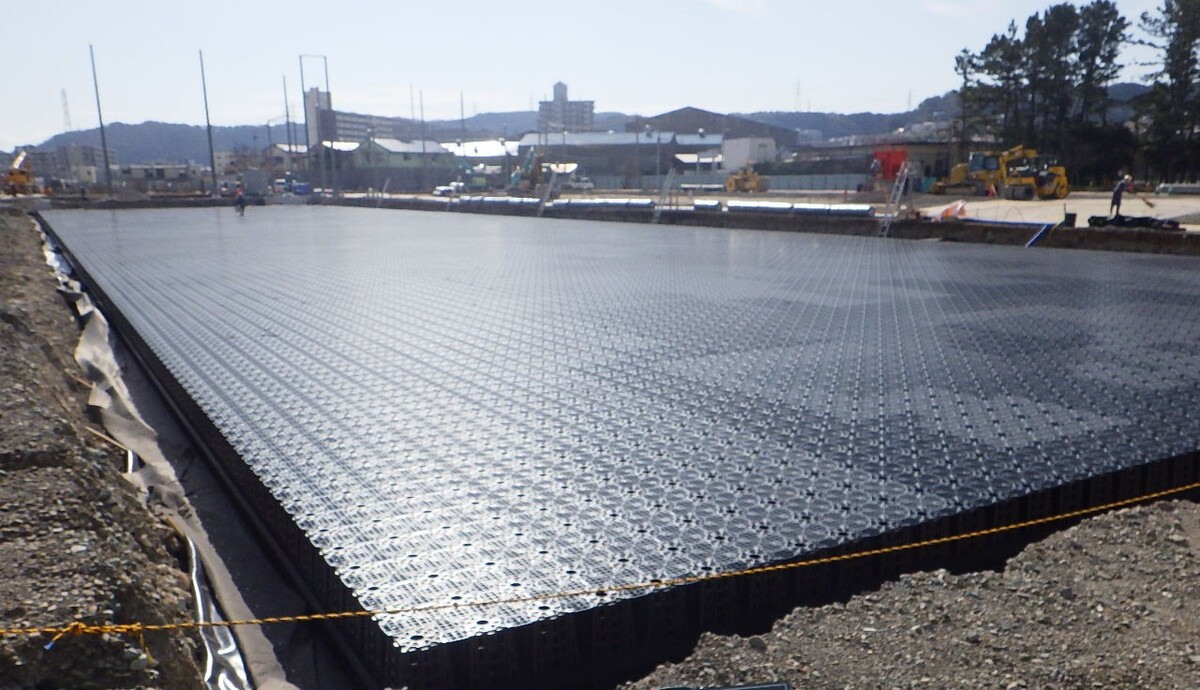
by Chichibu Chemical Co., Ltd.
PRSS: A sustainable and adaptable solution to rainwater inundation
A PRSS captures rainwater directly where it falls and stores it in plastic modular units installed underground. The system helps manage excess rainwater, reducing the impact of floods by temporarily holding the water and either using it for non-potable purposes or slowly releasing it back into sewer systems or underground soil, mitigating inundation risks and offsetting land subsidence (gradual settle or shrinking of the Earth's surface).
PRSS developed by Chichibu Chemical are made of lightweight, recyclable plastic that can hold water up to 95% of its weight. A pilot project installed PRSS at Lat Krabang Industrial Estate on the Bangkok metro outskirts.
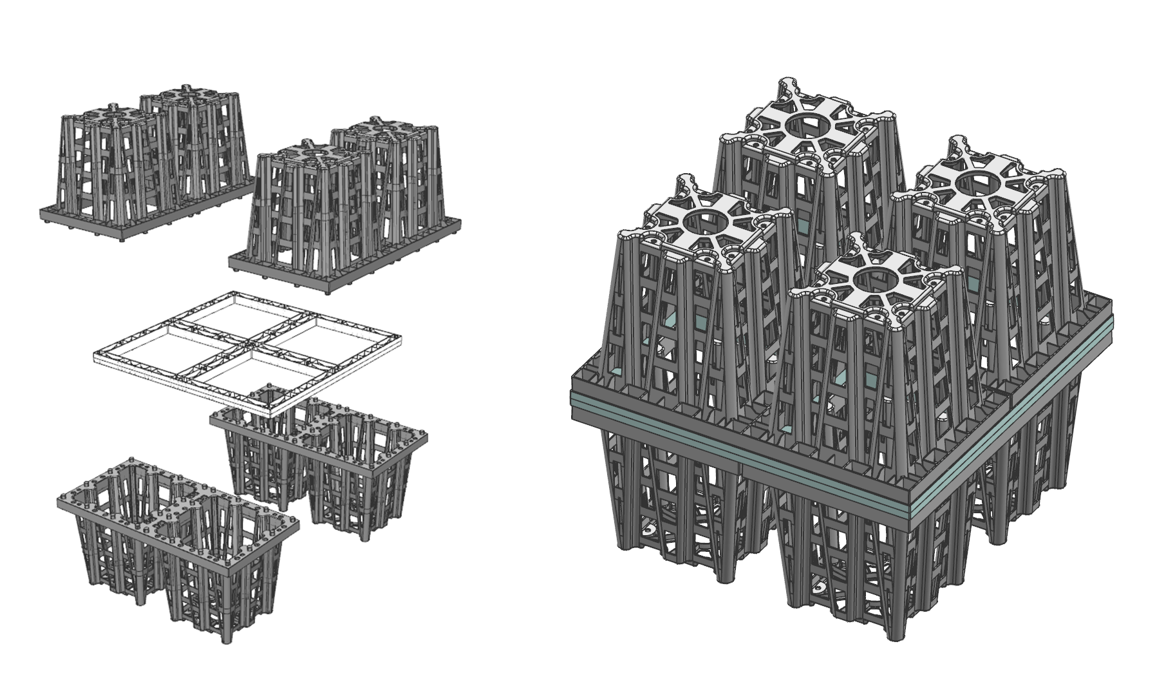
by Chichibu Chemical Co., Ltd.
Survey of PRSS efficacy
Between mid-2019 and early 2023, IEAT, JICA, and Chichibu Chemical also collaborated on a Business Verification Survey. The survey evaluated PRSS's effectiveness at mitigating inundation challenges in the sprawling Bangkok metro area. Amid Thailand's heightened focus on sustainable development, particularly in flood control, environmental protection, and climate change adaptation, the survey aimed to explore PRSS's potential.
The survey also aimed to formulate a comprehensive business plan for PRSS dissemination, seeking a path for innovative flood resilience strategies in urban settings. Quantitative evaluations in the survey measured the impact of PRSS in mitigating flood damage.
Based on the survey's findings:
- Design standards for PRSS were found to be important for maximizing advantages such as high storage efficiency.
- A third-party technical evaluation and certification system is needed to establish strength and durability standards and eliminate inferior products.
- Unified standards for installing runoff control facilities are needed at the local government, prefecture, and national levels to promote PRSS.
- Japan is qualified to lead the creation of local regulations based on its experience.
Overall, PRSS is a promising solution to address the challenges posed by Thailand's heavy rainfall and flooding amid urbanization and climate change, and adapting to existing systems. Production can move to the local level, and a proper business plan can guide implementation. Meanwhile, leveraging innovative technologies and strategic partnerships can help mitigate flood damage, build resilience, and promote sustainable development.
*Read the full survey report here (PDF file; English from page 70).


